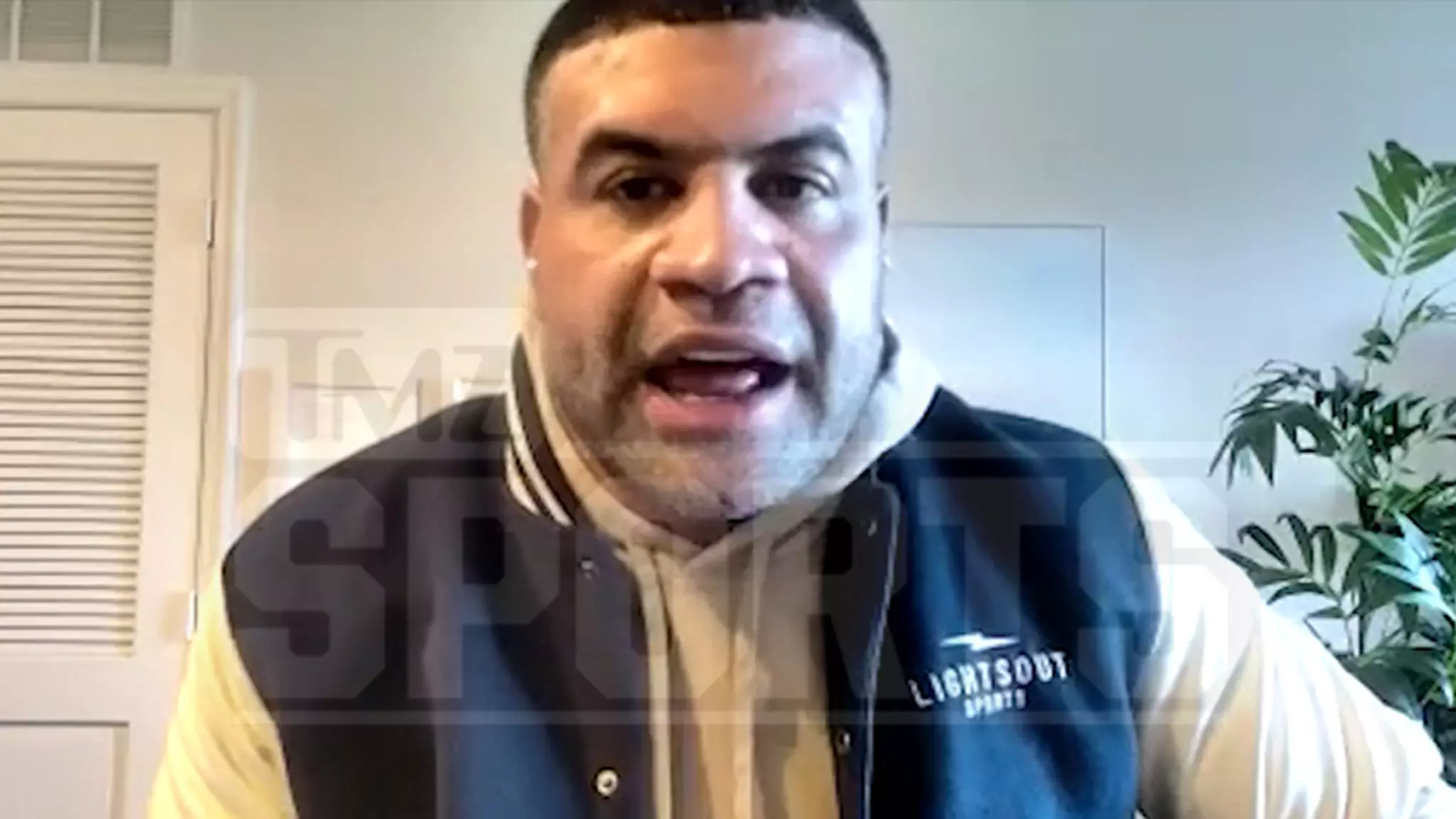The world of professional sports is one where a player’s reputation can be their most valuable asset—or their most significant liability. A single moment of poor judgment can overshadow years of hard work and commitment. This dilemma exemplifies the recent circumstances surrounding De’Vondre Campbell, linebacker for the San Francisco 49ers. The situation raises essential questions about accountability, team dynamics, and the lasting impact of one pivotal moment.
In a high-stakes game against the Los Angeles Rams, Campbell’s refusal to enter the field after his teammate Dre Greenlaw suffered an injury has sparked widespread criticism. Shawne Merriman, a retired NFL All-Pro, elaborated on this incident in a discussion with TMZ Sports, characterizing Campbell’s choice as potentially destructive to his career. Merriman emphasized that such an incident could render Campbell “unreliable” in the eyes of future teams, a label that may be too difficult to escape.
Such statements highlight a critical aspect of sports culture: the importance of perception. The NFL is a league that values toughness, reliability, and commitment. When a player seems to flout these values—especially in a moment when the team needs them the most—the repercussions can be immediate and severe. Merriman’s assertion that Campbell’s actions will essentially “erase” his previous contributions speaks volumes about the volatile nature of athletic reputations. It’s not just on-field performance that determines a player’s career; it’s also their behavior in critical moments.
The fallout from Campbell’s decision has reached beyond just expert analyses. His teammates have publicly condemned his actions following the loss to the Rams, expressing disappointment over the incident. Charvarius Ward and George Kittle’s reactions serve as reminders that a team environment thrives on accountability and collective resilience. When one player fails to adhere to these values, it can fracture the trust among teammates and disrupt the overall dynamic.
The importance of camaraderie in professional sports cannot be overstated. Success in high-pressure situations relies heavily on the belief that every player will give their all for one another. Campbell’s perceived lack of commitment jeopardizes not only his reputation but also the trust his teammates place in him. This complicates future assignments within the team and vastly reduces the chances of other organizations taking a risk on him in the future.
Considering the gravity of the situation, one question arises: Can Campbell salvage his career after this incident? Merriman suggests that a heartfelt apology may be necessary for him to begin rebuilding his reputation. Such a course of action would demonstrate an understanding of the impact of his choices and an acknowledgment of the trust his teammates and coaches place in him.
However, mere words may not suffice. Actions often speak louder, and Campbell would need to actively work at regaining the respect of peers and potential employers. Demonstrating unwavering dedication, resulting in consistent performance and camaraderie in future engagements, could help mend his reputation. Nevertheless, the reality remains stark: trust takes years to establish but can be dismantled in mere seconds.
This incident also prompts a broader investigation into how reputation management operates within professional sports. The media’s influence amplifies scrutiny and can damage a player’s public image beyond recovery. The urgency with which Merriman and others assess Campbell’s actions demonstrates that in today’s sports environment, players must navigate their careers with a heightened awareness of how their decisions may be perceived.
De’Vondre Campbell’s situation encapsulates the fragility of reputation in the unforgiving world of professional athletics. A moment of hesitation during a critical game has the potential to alter the entire trajectory of a player’s career. As fans, analysts, and players watch closely, the lesson is clear: in sports, as in life, one decision can define a legacy, for better or worse. The call for integrity, commitment, and teamwork echoes far beyond the football field, urging all individuals within this high-pressure arena to recognize the weight of their choices.

